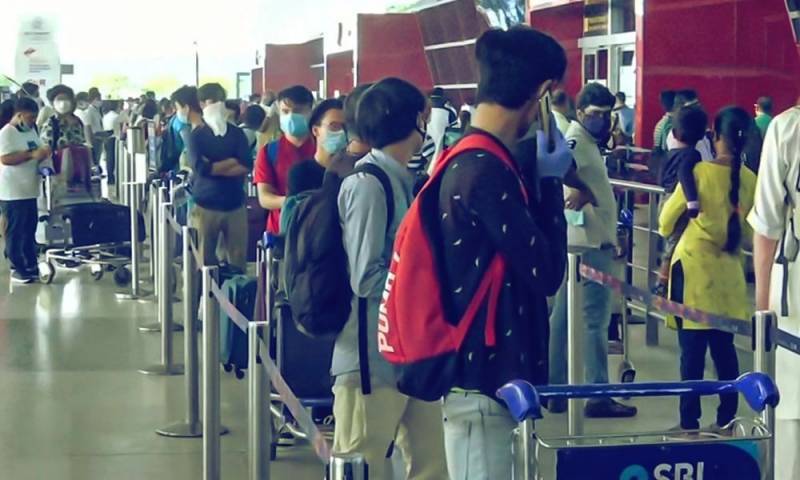Tightening its coronavirus norms, the Directorate General of Civil Aviation (DGCA) on Saturday announced that passengers will be deboarded from an aircraft if they are not wearing masks properly or are not following appropriate COVID behaviour.
In its guidelines, the DCGA said that passengers won’t be allowed to move their masks below the nose except under “exceptional” situations, adding that security personnel deployed at the airports should ensure that travellers are following COVID-19 norms. In case, any passenger onboard an aircraft refuses to wear masks or violates protocol despite repeated warnings then the passenger will be treated as ‘unruly passenger’,” the DCGA guidelines read.
This comes days after the Delhi High Court asked the DGCA to offload ‘without delay’ delinquent passengers who wear their masks on the chin and be put on a ‘no-fly list if they exhibit ‘stubborn reluctance. Giving details about his own experience, Justice C Hari Shankar of the Delhi High Court said that many passengers on the Kolkata-Delhi flight had worn their masks incorrectly and shown resistance when pulled up by the cabin crew, adding that the cabin crew was helpless in implementing the mandated protocol.
“In the event of any passenger being unwilling to follow this protocol prior to the flight taking off, the passenger should be offloaded without delay. If a passenger, despite being reminded more than once in flight, refuses to follow this protocol, action should be taken against the passenger in accordance with the guidelines issued by the DGCA or the Ministry of Health and Family Welfare, including placing the passenger on a no-fly regimen, either permanently or for a stipulated, sufficiently long period,” the Delhi High Court said,
All passengers’ flights were banned after the central government announced a nationwide coronavirus-induced lockdown. However, flights resumed from May 25 last year in a ‘graded manner’ after permissions from the Ministry of Home Affairs.


Comments are closed.